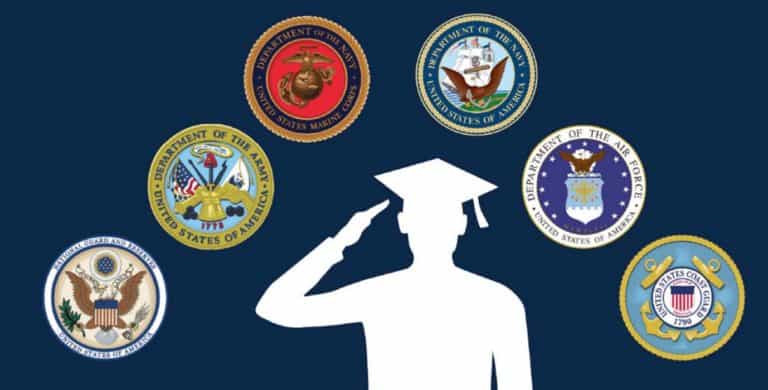Navigating the Path from Military Service to Medicine: A Veteran’s Journey
Veterans make great physicians, but they often face roadblocks to funding their training with Veteran Readiness and Employment (VR&E).
This veteran’s story is a collage of many we have seen in our law practice over the years. Frequently, these veterans give up the fight against VR&E ending up saddled with hundreds of thousands in student loans they need to pay back for most of their remaining careers.
Despite ample information online about the problems facing veterans when using VR&E, Congress remains ineffective in successfully addressing the challenges veterans face. Veterans remain wrongly denied, and the agency does little to address how arbitrary the decisionmaking process is at each Regional Office.
In 2015, I was asked to provide written testimony based on my experience as an attorney and advocate working with thousands of veterans in our Facebook group. This was after spending over a decade navigating the VR&E maze for more than a decade to become a licensed VA-accredited attorney through the program.
READ: Krause Congressional Testimony On Fixing VR&E
Unfortunately, neither Congress nor the VA has taken sufficient steps to remedy the problems veterans report, including those fighting to become future physicians. For years, VR&E staff have gotten away from making the following false statements to veterans, forcing many into financial hardship.
As reported to Congress then, a few negative examples of veterans’ feedback from VRC encounters where the VRC shared false information during the initial intake meeting are:
A. “VRE will not pay for graduate school.”
B. “VRE will not pay for law school.”
C. “VRE will not pay for private school educations.”
D. “VRE will not pay for Harvard.”
E. “VRE will not pay for a PhD.”
F. “VRE will not pay for medical school.”
G. “VRE will not pay for an MBA.”
H. “VRE will not fund a start-up business.”
I. “VRE will not pay for a computer.”
J. “VRE will not pay for ergonomic equipment.”
K. “VRE will not pay for ADA compliant software.”
L. “VRE will not pay for supportive accommodations in the workplace.”
M. “VRE will not pay for classes if you are in the independent living program.”
N. “VRE will not help you if you are 100% disabled or TDIU.”
Why do you suppose the problems haven’t been addressed? VA could quickly tell its VRCs to stop providing veterans with false information about the program, right?
If you are a veteran considering using VR&E for medical school, here is an example that should resonate with you while you prepare.
Meet Alex
In a world where dreams often clash with the harshness of reality, Alex, a dedicated veteran, found himself at a pivotal crossroads.*
After years of honorable service to his country, he now faced the daunting challenge of transitioning to civilian life while chasing a lifelong dream of becoming a physician. With only a few credits left to complete his bachelor’s degree and the clock ticking on his hard-earned benefits, Alex sought guidance to navigate his path to medical school without succumbing to a mountain of debt. This isn’t just Alex’s story; it’s a narrative that resonates with countless veterans striving to transform their military experience into a successful second career.
Join us as we explore Alex’s inspiring journey and the broader struggles faced by veterans pursuing their dreams in the civilian world.
Unlocking Opportunities with VR&E
The Department of Veterans Affairs offers the Veteran Readiness and Employment (VR&E) program, which is designed to help veterans pursue gainful employment and achieve independence.
But how can veterans like Alex leverage this program to cover not just their schooling but also critical residency training? Many veterans are unaware that VR&E can cover the entire journey to becoming a doctor, including the often-overlooked residency phase. This on-the-job training is essential, yet VR&E frequently denies residency coverage, mistakenly categorizing it as employment.
For veterans, understanding the nuances of these programs is vital.
Alex’s situation underscores the importance of taking full advantage of VR&E benefits right away. He was advised to complete the VA form 28-1900 and jump-start his application process. Time is of the essence, especially when managing limited GI Bill entitlements alongside the VR&E options.
Financial Impact and the Cost of Education
Pursuing a medical degree can easily cost upwards of $200,000, with additional expenses arising during residency. The financial implications of choosing the wrong benefits can lead to a staggering $400,000 difference in a veteran’s financial situation.
With Alex contemplating his path, it became clear that preserving his GI Bill for future needs while seeking VR&E support was a smart financial strategy. He was encouraged to apply for VR&E without depleting his GI Bill any further.
The difference between the two options—using the GI Bill versus VR&E—can be monumental. Many veterans fail to realize how significant these decisions are until it’s too late. The right guidance can mean the difference between a financially stable future and overwhelming debt.
The Professional Value of Education
Education provides veterans with job skills and contributes to society’s leadership and innovation. As Alex embarked on his journey, he was reminded that pursuing a medical career doesn’t just serve his ambitions; it equips him to contribute positively to the community and advocate for his fellow veterans. With the right resources, veterans become valuable assets in society, stepping into roles of authority and influence.
With the support of VR&E, Alex could potentially regain his GI Bill benefits if he was deemed eligible for these services. This safety net offers him a second chance, allowing him to pivot and adjust his career goals even beyond medicine, should he choose to explore fields like public health or law in the future.
Seeking Guidance in a Complex System
Navigating the complexities of veteran benefits can be overwhelming. With several routes and rules to know, veterans must seek knowledgeable assistance.
Alex was encouraged to connect with other veterans in the Facebook group Disabled Veterans – Chapter 31 Voc Rehab to get more information about what to expect. These resources can prove invaluable, especially when faced with denials or complications during the application process.
If denied, he learned of a VA-accredited attorney who understands the intricacies of VR&E.
The takeaway for veterans like Alex—and anyone else embarking on a similar journey—is to utilize every available resource. The road from military service to a medical career is filled with potential pitfalls but also great rewards. With the right help, veterans can not only achieve their dreams but also become future leaders and advocates for their communities.
As Alex’s story shows, the benefits available to veterans are not simply handouts; they are opportunities to forge a new path, make a significant impact, and leave a legacy that reflects their service. So whether you’re a veteran or know someone who is, remember: each step taken towards education and job readiness is a step towards a brighter future for everyone.
*The story about Alex is based on various experiences many veterans face and not just one veteran.





Pffft. You know they aren’t paying for more than 4 years of school. Doesn’t matter if you’re Albert Einstein. They will hire you at VA though.. and feed that dysfunctional wreck. Don’t be that guy. Be the guy who becomes a lawyer and sues the dysfunctional wreck.
When ordering medication..the fuckin pharmacist could just not want to do something one day because of some bullshit reason.. and nobody will tell you that’s what the problem is.. because then they risk the veteran coming in a beating their fuckin ass. So guess what? You’re just shit out of luck with no reason given as to why something so simple can’t be accomplished. That place is fucked up.
Unbelievable it’s illegal to beat on those fucks at VHA. Hopefully cover up McDonough ends up like Mr. Scratched Ear himself accept less lucky. Someone has to pay for the past decade and all the cover ups.
VHA is many lawsuits away from implosion. I’d say about 60 years if people start now. File yourself a lawsuit today. The paperwork can be gotten online if lawyers don’t want to do the work. Courts throwing out your case? Grab yourself some TNT…
They just want to pay people to work at the VA and that’s it. It’s a jobs program first and “healthcare system” second… and that’s IF they want to pay for medical procedures. It’s a crap shoot. Send the derelicts home and sell the facilities.. create an insurance program for veterans. Eliminating VHA will ensure there’s no more denial of care. Otherwise you can expect denial of care and abuse.